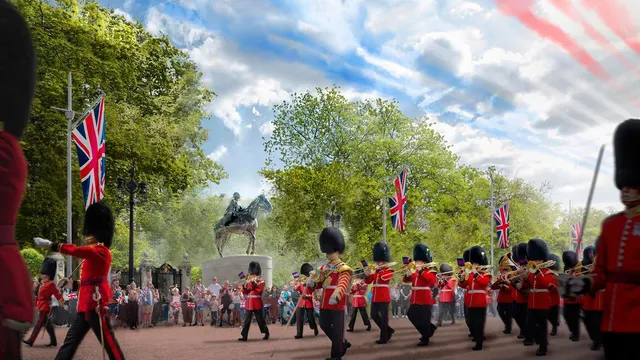
Norman Foster wins bid to design national memorial to Queen Elizabeth II
2025-06-26 00:00- Foster + Partners, led by Norman Foster, was chosen to design the national memorial to Queen Elizabeth II in St James's Park.
- The design includes a translucent bridge inspired by the Queen's wedding tiara, with gardens and statues for public reflection.
- The memorial is expected to be unveiled in 2026, coinciding with the late Queen's 100th birthday.
Express your sentiment!
Insights
In London, the international architecture firm Foster + Partners was chosen to design a national memorial to the late Queen Elizabeth II. The announcement was made in June 2023, shortly after the Queen's passing in September 2022, at the age of 96. Among various proposals, Foster's design stood out, featuring a translucent glass bridge inspired by the Queen's wedding tiara, as well as landscaped gardens and statues of both Queen Elizabeth and her husband, Prince Philip. The memorial will be located in St James’s Park, which is significant due to its proximity to key royal locations like Buckingham Palace. The design also incorporates a family of gardens and paths, which seek to encapsulate the Queen's legacy of unity and her capacity to bridge various aspects of society, cultures, and the Commonwealth. Lord Foster described the honor of receiving the project and expressed his aim for the memorial to serve as a contemplative space for public reflection. Foster's firm plans to implement the memorial with a
Contexts
The impact of Queen Elizabeth II on Britain is profound and multifaceted, reflecting her status as a significant cultural and historical figure. Ascending to the throne in 1952, she became a symbol of continuity and stability during a period of substantial change in British society. Through her reign, which spanned over six decades, Queen Elizabeth II witnessed and adapted to monumental shifts, including the decolonization of Africa and the Caribbean, the evolution of the Commonwealth, and the transformation of Britain into a multicultural society. Her commitment to public duty and national service has played a vital role in the UK's identity and has helped to foster unity during times of political and social upheaval. Queen Elizabeth II’s reign has been characterized by a careful balancing act of tradition and modernization. She has embraced new media, thereby enhancing her connection with the public, especially during critical moments such as the COVID-19 pandemic. Her televised addresses have not only provided comfort but have also served as a reminder of the resilience of the British spirit. The Queen's engagement with contemporary issues, such as climate change and mental health, demonstrates her acknowledgment of the changing values within British society. This adaptability has allowed her to remain relevant and maintain the monarchy’s position in a rapidly changing world. Moreover, the Queen’s role as a diplomatic figure has been significant in strengthening Britain’s international relationships. Her state visits and meetings with various world leaders have fostered goodwill and cooperation, positioning her as an ambassador for British values abroad. This aspect of her role has enhanced Britain’s soft power, allowing the nation to wield influence on the global stage, often reinforcing the notion of the monarchy as a unifying force. Queen Elizabeth’s ability to navigate political controversies without overtly engaging in politics underscores her effectiveness in maintaining the monarchy's apolitical stance, which has been key to its enduring relevance. In conclusion, Queen Elizabeth II’s influence on Britain transcends mere ceremonial duties; she embodies the ethos of the nation and mirrors the journey of the country through substantial challenges and transformations. Her commitment to service, ability to modernize her image, and diplomatic engagements reflect a unique blend of tradition and progress. As Britain continues to evolve, her legacy remains integral to understanding the contemporary landscape of the monarchy and its enduring relevance in British life.